Epilepsy is a condition that causes sudden, repeated seizures due to abnormal electrical activity in the brain. Not all seizures mean epilepsy, but when they happen often without a clear reason, doctors may call it a seizure disorder.
Epilepsy treatment means using medicines, lifestyle changes, or surgery to help control seizures. The goal is to reduce how often seizures happen and make life safer and more comfortable for the patient.
Some people refer to it as “fits” or “seizure disorder”. A common belief is that epilepsy cannot be treated, but this is incorrect. With the right treatment, most people can control their seizures and lead active lives.
Treatment depends on the type of seizures, their cause, and the patient’s age and health. Doctors usually begin with medicines, and in some cases, use brain surgery or nerve stimulation if seizures do not improve.
Always consult a qualified neurologist or healthcare provider for proper diagnosis and personalised treatment for epilepsy.
People need epilepsy treatment to manage seizures, avoid injuries, and live a more stable life. The treatment helps control the brain’s abnormal activity, reduces how often seizures happen, and improves daily safety and confidence.
There are many reasons why a person may develop epilepsy. In some cases, doctors cannot find a clear cause.
The early symptoms of epilepsy are often missed because they look like common issues such as tiredness, stress, or fainting. But these signs may repeat and slowly affect a person’s health and safety.
The symptoms of seizure disorder include:
Doctors usually recommend epilepsy treatment when symptoms keep happening or test results confirm a seizure disorder.
To understand how epilepsy care continues to improve, you can explore Apollo Hospitals’ latest advances in diagnosis and treatment. These include:
Most treatment plans begin with anti-seizure medicines. Patients often search using phrases like name of medicine for epilepsy (seizure disorder) or name of medicine for seizure disorder" to understand their treatment options. Doctors may prescribe options like sodium valproate, carbamazepine, or levetiracetam, depending on the type of seizures and the patient’s health.
Disclaimer: This information is for general understanding only. Always consult a qualified doctor before starting or changing any medication.
In addition to medicines, doctors suggest lifestyle changes and safe physical activity. Some exercises for epilepsy patients include walking, yoga, or swimming with supervision. Avoiding missed doses, stress, and lack of sleep also helps reduce seizures.
These are some of the best-known ways to get rid of epilepsy, or more correctly, to manage it well and prevent seizures from happening again. Always consult your doctor or neurologist before starting any new activity or making changes to your epilepsy treatment plan.
If you or your loved one is facing these signs, Bangla Health Connect can help you consult epilepsy experts worldwide and plan the next steps with confidence.
.png)
Through Bangla Health Connect, Bangladeshi patients can access internationally recognised hospitals across India, Thailand, and other countries known for excellence in epilepsy care. Many patients travel abroad due to advanced treatment options, comprehensive care, and a trusted reputation for managing complex neurological conditions.
Here’s why Bangladeshi patients choose epilepsy treatment with Bangla Health Connect in hospitals worldwide:
For Bangladeshi patients, Bangla Health Connect provides a trusted pathway to expert epilepsy specialists, cutting-edge therapies, and affordable global care.
Bangla Health Connect connects patients with world-class hospitals specialising in epilepsy care. These centres are recognised for their expert neurologists, epileptologists, and neurosurgeons, advanced diagnostic facilities, and modern treatment options. They also provide comprehensive support services for international patients, ensuring Bangladeshi patients receive timely, effective, and compassionate care abroad.

.jpg)

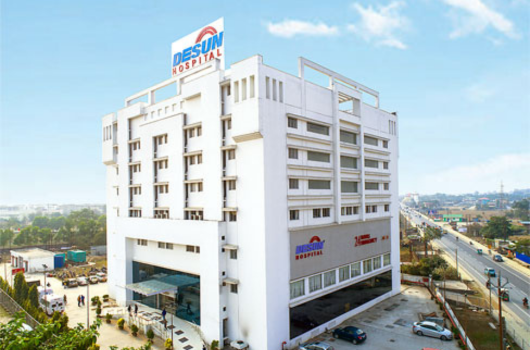
.png)
.png)

.jpg)

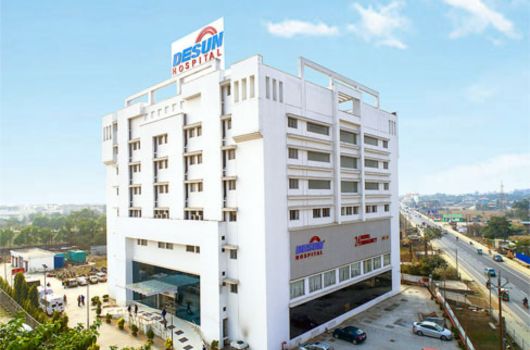


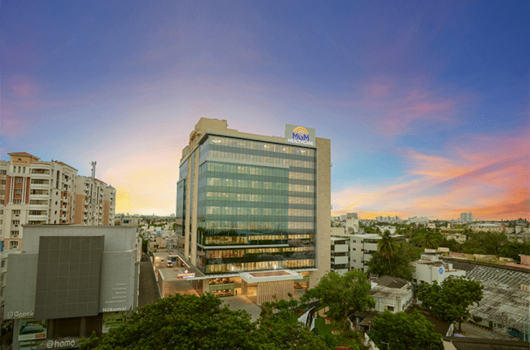


.png)

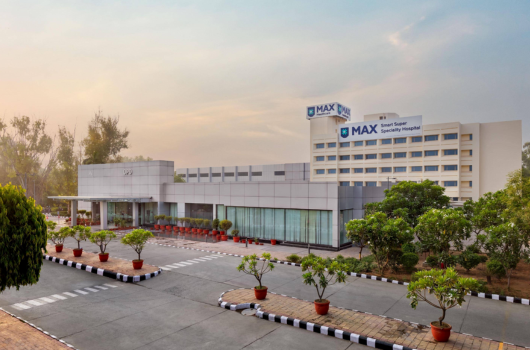
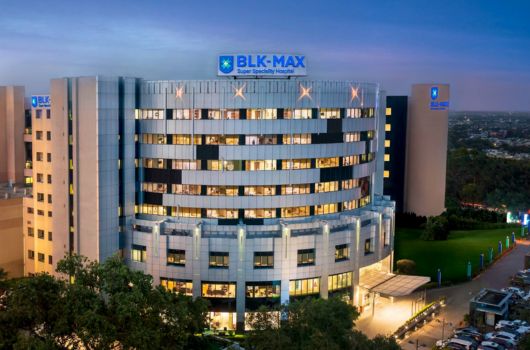
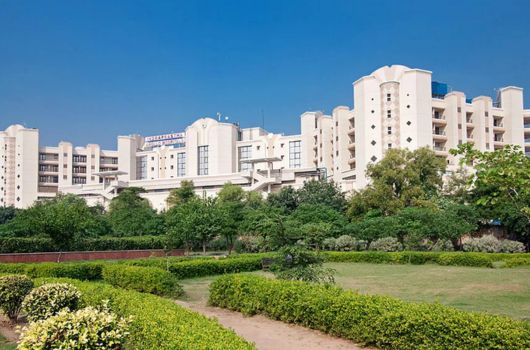


.jpg)


These hospitals follow global treatment guidelines and provide full support for Bangladeshi patients through Bangla Health Connect.
The average cost of epilepsy treatment in India ranges from $8,600 to $12,500 and $14,800 to $27,200 in Thailand. The final cost may vary based on multiple factors such as the treatment method, hospital location, and complexity of the condition. Before viewing the detailed table of treatment-wise costs, it's helpful to understand what influences these expenses most.
Several factors can influence the total cost of epilepsy treatment:
Note: India is well known for offering cost-effective advanced treatment. Hospitals combine affordability with strong clinical outcomes, supported by skilled experts and the widespread availability of generic medicines.
Note: Thailand’s hospitals are often promoted as premium destinations for international patients. Their higher costs reflect the use of advanced imported medicines, luxury infrastructure, and all-inclusive patient care packages.
The costs listed are approximate and may vary based on hospital, location, and patient needs. Consult the healthcare provider for accurate and updated information.
The currency conversion rates in the table above are based on data from October 2025.
For more help on cost estimates and personalised guidance, contact Bangla Health Connect.
The effectiveness of epilepsy treatment is highly influenced by the timing of diagnosis and the appropriateness of the management strategy. Early identification and intervention are crucial for achieving optimal outcomes. The success of epilepsy treatment depends mostly on how early the condition is diagnosed. Early intervention improves outcomes and helps patients live better, safer lives.
Success in epilepsy care does not always mean a complete cure. It can include:
Top hospitals focus on accurate diagnosis, advanced treatment, and holistic care for patients with epilepsy. Their approach includes:
This combination of advanced testing, expert guidance, and patient-centred care helps control seizures, reduce risks, and improve daily living for patients with epilepsy.

Dr. S Muthukani, Consultant Neurologist & Epileptologist at Apollo Hospitals, Greams Road, Chennai, explains the broad impact of epilepsy across all age groups. He outlines key types: generalised and focal seizures, and describes how they affect the brain differently. According to him, about 70% of patients achieve full seizure control with consistent use of anti-epileptic drugs. He also stresses the importance of identifying personal seizure triggers and acting early. With structured care and informed support, most patients can live independently and confidently. His guidance helps patients and families make sense of the condition and manage it effectively.

Dr. Vishwanathan, Paediatric Neurologist at Apollo Children’s Hospital, Chennai, highlights the need to understand epilepsy beyond fear and stigma. He explains that many seizures in children are linked to fever and do not mean lifelong epilepsy. He reassures families that epilepsy is not a mental illness, and children with the condition are often intelligent and capable. With timely diagnosis, regular medicine, and follow-up, most children manage epilepsy well, and many eventually outgrow it. He also clarifies that epilepsy is rarely inherited, and women can plan safe pregnancies under medical guidance. His focus is on breaking myths and building trust, especially for families facing epilepsy for the first time. His message is clear: early diagnosis and informed care help children live safely and confidently.
Bangla Health Connect connect patients with top neurologists and epilepsy specialists abroad, ensuring access to advanced diagnostic tools and modern treatment options. From arranging pre-treatment consultations to supporting second opinions, we guide patients and families in understanding their condition and choosing the most effective care pathway.
Choosing Bangla Health Connect means better care, faster access, and full support. Reach out to Bangla Health Connect to begin your treatment journey with peace of mind.
Note: Bangla Health Connect does not provide medical advice of any kind.
✅ Share Your Reports - Bangla Health Connect connects you with trusted hospitals worldwide.
✅ Get treatment plans from leading Hospitals worldwide
✅ Choose the one that fits you
✅ Let us handle the rest
Yes. Bangladeshi patients need a medical visa to get treatment abroad. Bangla Health Connect will help you get the doctor’s invitation letter and guide you through the visa process.
Yes. You can bring one or two attendants. They should apply for a medical attendant visa along with your application.
The early symptoms of epilepsy may include staring blankly, sudden confusion, shaking, or fainting. If these signs repeat, it’s important to see a doctor.
The name of medicine for epilepsy (seizure disorder) varies based on the type of seizures and the patient’s condition. Commonly prescribed anti-seizure medications include sodium valproate, carbamazepine, and levetiracetam.
Note: This information is for general awareness only. Always consult a qualified doctor before starting or changing any medication.
Safe exercises for epilepsy patients include walking, yoga, and swimming (with supervision). Regular activity helps reduce stress and improve overall health. Exercise recommendations may vary based on each patient’s condition. Always consult your neurologist or healthcare provider.
Doctors diagnose epilepsy using tests like EEG, MRI, and a review of the patient’s history. These tests help check for unusual brain activity or other conditions.
Yes. If medicines do not control the seizures, doctors may recommend epilepsy surgery or nerve stimulation therapies such as VNS or DBS. These are available in specialised hospitals worldwide. Contact Bangla Health Connect to connect with doctors abroad.
No. Taking epilepsy medicine is not painful. Some surgeries may cause short-term discomfort, but doctors give medicines to manage pain and support recovery. Always consult the doctor for the whole process.
It depends on your treatment plan. For medicine and tests, 2 to 7 days may be enough. For surgery or VNS, patients may stay 2 to 4 weeks for recovery and follow-up.

